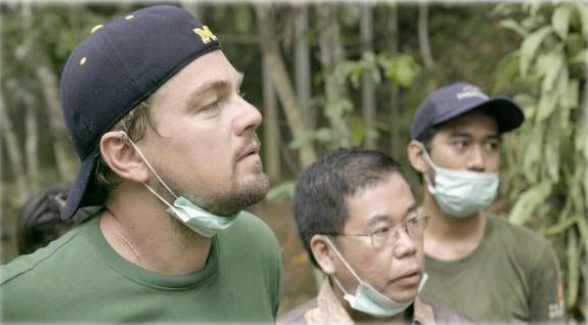I had planned to continue talking about Green Manufacturing initiatives, but I have decided to write a new post with a different but complementary approach to sustainable manufacturing.
Before the Flood is a 2016 documentary film about climate change firstly screened on 30th October 2016 on the National Geographic Channel. Directed by Fisher Stevens and starring Leonardo DiCaprio. The film was produced by a collaboration between Stevens, Leonardo DiCaprio, James Packer, Brett Ratner, Trevor Davidoski, and Jennifer Davisson Killoran. Martin Scorsese is an executive producer.
The film shows DiCaprio visiting various regions of the globe during 3 years exploring the impact of man-made global warming. Along with Leonardo DiCaprio, the documentary includes interviews with Barack Obama, Pope Francis, Sunita Narain, Elon Musk, and Johan Rockström. I strongly encourage everybody to watch this film. It is widely available and free of charge on various platforms like the National Geographic Channel in Youtube
I have been fortunate to work on the demonstrative REEMAIN project during the last three years. In this project, among other multiple activities, three demo factories (biscuits, iron foundry and denim fabrics) are voluntarily –and supported by European funds- taking several initiatives in order to increase their efficiency in terms of energy and material resources consumption.
Even in subsidised scenarios like REEMAIN, it is not easy to achieve the required modifications in the manufacturing processes and installations in order to merely reduce the corresponding environmental impact, especially if the modifications affect the expected profits. Therefore, although some proposed measures should not affect the factory profitability, they are still perceived by the Managers as unnecessary risk or uncertainty elements.
Why should any company turn its production and operative systems upside down to fight against climate change? What happens with those companies whose products or production processes are inherently polluting?
Simply encouraging companies to include among their main objectives the fight against climate change is a good idea, or at least is better than doing nothing, but it is clearly not enough. The process will not be fast enough. The change must be externally boosted, and it is our responsibility as citizens-voters-consumers to assure it. One possible booster is the politician power through the adoption of new more restrictive legislation like the banning of coal use in the European cities. The other booster might be the consumers awareness and consequent rejection of those products and services associated with a high environmental impact. For example, the campaigns against the use of palm oil.

This film of DiCaprio is naturally more oriented towards the American public. Hence, it takes some time to explain the USA politician system and the economic relationships established between politicians and big hydrocarbons companies. Because of it, currently in the 2016 America Congress and Senate there is an important percentage of representatives that directly deny the climate change. In Europe, our politic representatives fortunately, no longer have doubts about the climate change. However, it seems like if the possible negative effects over the economy were slowing the development of new regulations that restrict or directly ban the most polluting products and processes. A practical example of this issue is the EC authorities management of the “Dieselgate” scandal.
The movie ends –this is not a spoiler, since the important idea of this film is spread through the whole movie- with a clear message: It is up to all of us to stop the climate change. It can be achieved using two tools: our consumer habits and our vote.
Consume differently. Reflecting on what we buy, what we eat and how we get our power, might make a first step.
Vote for leaders who will fight climate change, will make the second step. Leaders that will end fossil fuel subsidies and exploitation, invest in renewables and support a price on carbon.
I absolutely agree with both proposals. However, I would add that in addition to consumers and voters we are also citizens, hence, we must try to communicate and convince the rest of the citizens about the importance of stopping the climate change. This post is my first grain of sand.
- Efficiency Wars (Episode VI) – The Return of Bohr - 25 July 2017
- Efficiency Wars (Episode V) – The ROI strikes back - 20 June 2017
- Efficiency Wars (Episode IV) – A new (efficiency) hope - 25 May 2017
